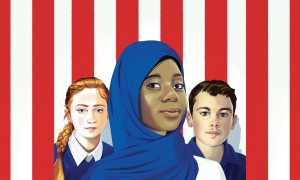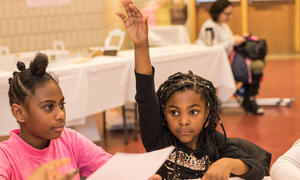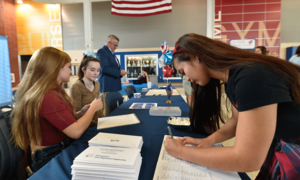225 Results
Bring Civics Education to Life With “Voting and Voices”

Love Your Magic Conference

Spotlighting—and Quantifying—the Problem
Our Children Are a Rainforest of Potential – What Future Will We Give Them?
The well-being of children should concern us all. This crucial election week, we must unite in choosing a more inclusive and democratic society. Georgia educator Katie Rinderle, who was fired for reading a children’s book about acceptance, encourages us to advocate for all children, reminding us of the importance of our votes at all levels, including local school boards. And feature articles from our new fall magazine on food insecurity and the critical need to end the school-to-prison pipeline emphasize the critical need to live up to our nation’s democratic values.
- Children Are a Rainforest of Potential
- Child Hunger Should Concern Us All
- Only Young Once: The Case for Dismantling the South’s School-to-Prison Pipeline
Future Voters Project: Build Your Registration Team

Magazine Preview – What It Means To Learn for Justice
In our new fall 2024 magazine, Learning for Justice Director Jalaya Liles Dunn emphasizes the importance of coming together around a shared vision in the practice of democracy. Dunn explains that “We increase our power to foster change when we are in community with one another – deliberating, deciding and taking action.” Our democracy’s strength rests on our ability to commit to one another for a shared purpose that centers our humanity.
- What It Means To Learn for Justice
- Amanda Gorman
- There’s Good People Out There: A Conversation With Charles Person
Understanding the Office and Holding the President of the United States Accountable
The president of the United States is the elected leader of the entire U.S. and must serve all who live here — not merely one constituency. They are responsible to everyone, and we have the reciprocal responsibility of holding the president accountable for everyone’s well-being. This is a central characteristic of living in a democratic society. To evaluate a president’s ability to fulfill the responsibilities of the office, we must understand the role and responsibilities, powers and limits on power, and systems of accountability.
- The Roles and Responsibilities of the President
- What Are the Values of Democracy?
- A Time of Transformation and Possibility